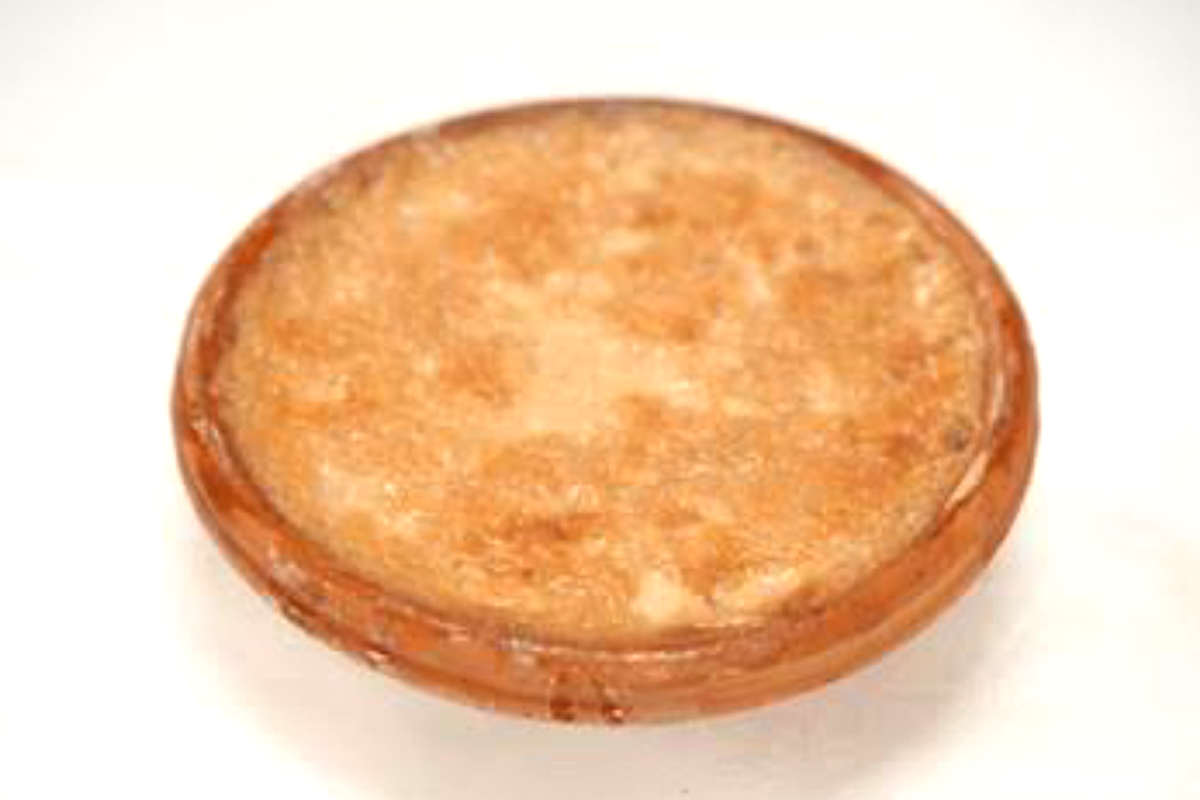The Surprising Benefits of Drinking Olive Oil Before Bed

(Health Benefits of Drinking Olive Oil Before Bed)
Olive oil, a cornerstone of Mediterranean cuisine, has long been celebrated for its nutritional value and health benefits. Its rich profile of monounsaturated fats, antioxidants, and vitamins has made it a staple in many diets. While it’s commonly used as a cooking ingredient, there’s a growing interest in incorporating olive oil into nighttime routines. In this comprehensive exploration, we delve into the potential advantages of consuming olive oil before bed, from improving sleep quality to enhancing digestive health.
The Power of Olive Oil: A Nutritional Breakdown
Before diving into the specific benefits of drinking olive oil before bed, let’s examine its nutritional composition. Olive oil is primarily composed of monounsaturated fatty acids, particularly oleic acid. These healthy fats are known for their positive impact on heart health, cholesterol levels, and blood pressure. Additionally, olive oil contains a variety of antioxidants, including polyphenols and vitamin E, which help protect cells from damage caused by free radicals.
Benefits of Drinking Olive Oil Before Bed
1.Improved Sleep Quality
Satiety and Reduced Hunger: Consuming a small amount of olive oil before bed can help curb late-night hunger pangs, ensuring a more restful sleep.
Relaxation and Stress Reduction: The monounsaturated fats in olive oil may contribute to a sense of relaxation, helping to alleviate stress and promote better sleep.
Hormonal Balance: Some studies suggest that olive oil may help regulate hormones involved in sleep, such as melatonin.
Improved Sleep Apnea: While more research is needed, some anecdotal evidence suggests that olive oil may help alleviate symptoms of sleep apnea, a condition characterized by disrupted breathing during sleep.
2.Enhanced Digestive Health
Lubrication and Digestion: Olive oil can help lubricate the digestive tract, promoting smoother digestion and reducing the risk of heartburn or acid reflux.
Gut Microbiome Support: The beneficial fatty acids in olive oil may support a healthy gut microbiome, which plays a crucial role in overall well-being.
Reduced Inflammation: Olive oil’s anti-inflammatory properties can help alleviate digestive issues associated with inflammation, such as irritable bowel syndrome (IBS).
Liver Health: Some research suggests that olive oil may help protect the liver from damage and support its detoxification functions.
3.Heart Health Benefits
Lower Cholesterol Levels: Regular consumption of olive oil has been linked to lower levels of LDL (bad) cholesterol and higher levels of HDL (good) cholesterol.
Reduced Risk of Heart Disease: A diet rich in olive oil has been associated with a lower risk of heart disease, stroke, and other cardiovascular conditions.
Blood Pressure Regulation: Olive oil may help regulate blood pressure, reducing the strain on the heart and blood vessels.
Improved Blood Flow: Olive oil can help improve blood flow to the heart and other organs, reducing the risk of heart attack and stroke.
4.Skin Health Benefits of Drinking Olive oil Before Bed
Hydration and Moisture: Olive oil can help moisturize the skin from the inside out, promoting a healthy and glowing complexion.
Antioxidant Protection: The antioxidants in olive oil can help protect the skin from damage caused by environmental factors, such as UV rays and pollution.
Reduced Inflammation: Olive oil’s anti-inflammatory properties can help alleviate skin conditions like eczema and psoriasis.
Hair Health: Some people report that consuming olive oil can improve hair health, promoting growth and reducing breakage.
5.Weight Management
Healthy Fats: Olive oil provides healthy fats that can help you feel full and satisfied, reducing the likelihood of overeating.
Metabolic Boost: Some studies suggest that consuming olive oil may help boost metabolism, aiding in weight management.
Nutrient Density: Olive oil is a nutrient-dense food that can contribute to a balanced diet without excessive calories.
Reduced Cravings: Olive oil may help reduce cravings for unhealthy snacks and foods.
How to Incorporate Olive Oil into Your Nighttime Routine
Direct Consumption: One of the simplest ways to consume olive oil before bed is to take a tablespoon directly. You can also mix it with a small amount of lemon juice or honey for added flavor.
Salad Dressing: Create a light and flavorful salad dressing using olive oil as a base. Enjoy a salad before bed to promote digestion and provide essential nutrients.
Cooked Dishes: Incorporate olive oil into your evening meals, such as grilled vegetables, roasted chicken, or fish. Opt for healthy cooking methods like baking, grilling, or sautéing.
Important Considerations
Quality Matters: When choosing olive oil, opt for extra virgin olive oil, which is considered the highest quality and retains more of its beneficial compounds.
Moderation is Key: While olive oil is generally healthy, it’s important to consume it in moderation. Excessive intake of calories, even from healthy fats, can contribute to weight gain.
Individual Variations: The benefits of consuming olive oil before bed may vary from person to person. It’s essential to listen to your body and adjust your intake accordingly.
Consult a Healthcare Professional: If you have any underlying health conditions or concerns, it’s always advisable to consult with a healthcare professional before making significant changes to your diet.
A Deeper Dive into Olive Oil’s Nighttime Benefits
While the previous section provided a comprehensive overview of olive oil’s potential benefits when drinking before bed, there are additional areas worth exploring in more detail. Let’s delve deeper into some specific aspects:
The Role of Oleic Acid in Sleep Regulation
Oleic acid, the primary monounsaturated fatty acid in olive oil, may play a significant role in regulating sleep patterns. Studies have shown that oleic acid can influence the production of certain hormones and neurotransmitters involved in sleep, such as melatonin and serotonin. By supporting the balance of these substances, olive oil may contribute to a more restful and consistent sleep.
Olive Oil and Inflammation: A Connection to Sleep
Chronic inflammation has been linked to various health problems, including sleep disturbances. Olive oil’s anti-inflammatory properties may help reduce systemic inflammation, creating a more conducive environment for quality sleep. By targeting inflammation, olive oil may alleviate symptoms such as restlessness, difficulty falling asleep, and frequent awakenings.
Olive Oil and Gut Health: The Sleep Connection
The gut microbiome, the complex community of microorganisms living in the digestive tract, plays a crucial role in overall health, including sleep. A healthy gut microbiome can influence the production of neurotransmitters that regulate sleep, such as serotonin and GABA. Olive oil’s beneficial effects on gut health may indirectly contribute to improved sleep by supporting the balance of these neurotransmitters.
Olive Oil and Stress Reduction: A Pathway to Better Sleep
Stress is a common culprit behind sleep disturbances. Olive oil’s potential to reduce stress may indirectly improve sleep quality. By promoting relaxation and reducing cortisol levels (the stress hormone), olive oil can create a more conducive environment for restful sleep.
Olive Oil and Sleep Apnea: A Potential Solution
While more research is needed, some anecdotal evidence suggests that olive oil may help alleviate symptoms of sleep apnea, a condition characterized by disrupted breathing during sleep. The anti-inflammatory properties of olive oil may help reduce inflammation in the upper airway, potentially improving airflow and reducing the severity of sleep apnea.
Olive Oil and Hormonal Balance: A Key to Restful Sleep
Hormonal imbalances can significantly impact sleep quality. Olive oil may help regulate hormones involved in sleep, such as melatonin and cortisol. By supporting hormonal balance, olive oil can contribute to a more consistent and restful sleep pattern.
Olive Oil and Weight Management: A Foundation for Better Sleep
Excess weight can contribute to sleep apnea and other sleep disorders. Olive oil’s potential to support weight management may indirectly improve sleep quality. By promoting satiety and reducing cravings, olive oil can help individuals maintain a healthy weight, reducing the risk of sleep-related issues.
Olive Oil and Mental Health: A Connection to Sleep
Mental health conditions such as anxiety and depression can significantly impact sleep quality. Olive oil’s potential to support mental health may indirectly improve sleep. By reducing stress and promoting relaxation, olive oil can create a more conducive environment for restful sleep.
Olive Oil and Aging: A Key to Healthy Sleep
As we age, sleep quality often declines. Olive oil’s antioxidant properties may help protect the brain and body from the effects of aging, potentially contributing to better sleep. By reducing oxidative stress and supporting overall health, olive oil may help maintain healthy sleep patterns as we age.
Olive Oil and Lifestyle Factors: A Holistic Approach to Sleep
While olive oil can offer several benefits for sleep, it’s essential to consider other lifestyle factors that can influence sleep quality. These factors include:
- Sleep Hygiene: Establishing a consistent sleep schedule, creating a relaxing bedtime routine, and ensuring a comfortable sleep environment are crucial for optimal sleep.
- Stress Management: Practicing stress-reduction techniques such as meditation, yoga, or deep breathing can significantly improve sleep quality.
- Exercise: Regular physical activity can promote better sleep, but it’s essential to avoid intense workouts close to bedtime.
- Diet: A balanced diet that includes plenty of fruits, vegetables, and whole grains can support overall health and improve sleep.
- Limit Screen Time: Reducing exposure to blue light from electronic devices before bed can help regulate sleep hormones.
- Avoid Stimulants: Limit caffeine and alcohol consumption, especially in the evening, as they can interfere with sleep.
By incorporating olive oil into your nighttime routine and addressing these lifestyle factors, you can create a more conducive environment for restful and rejuvenating sleep.
In conclusion, incorporating olive oil into your nighttime routine can offer a variety of potential health benefits. From improving sleep quality to enhancing digestive health and supporting heart health, the versatility of olive oil makes it a valuable addition to a balanced diet. By understanding the nutritional properties of olive oil and incorporating it into your lifestyle, you can unlock its full potential for a healthier and more restful night’s sleep.




